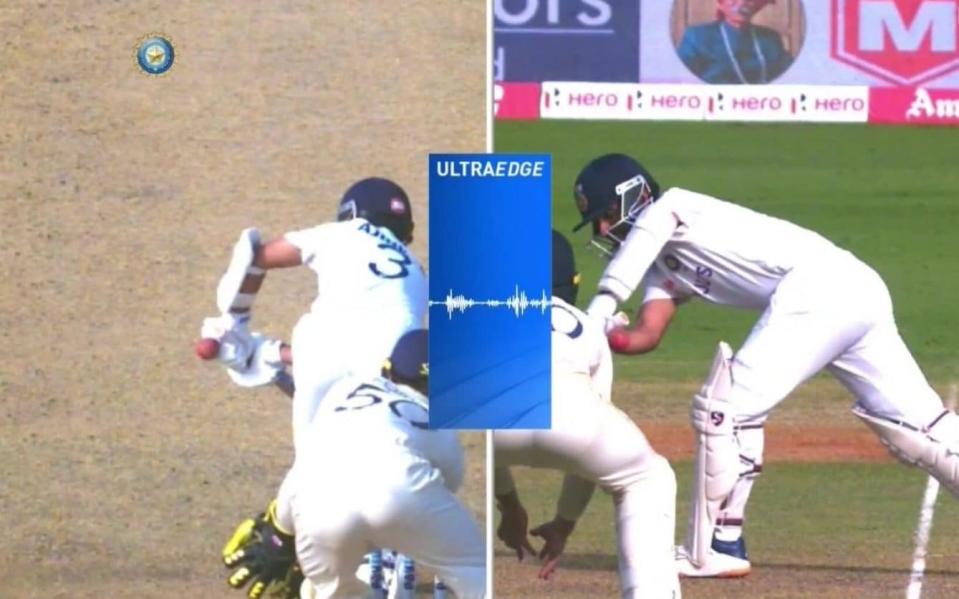Mark Butcher's analysis of 'a stinker' of a decision by third umpire puts India's host commentators to shame

England had a tough day in Chennai but one man emerged with a great deal of credit: not wicket-takers Moeen Ali or Jack Leach, but Mark Butcher, who fought behind enemy lines for truth, justice and the correct implementation of the DRS system on the Indian TV coverage of the Test match.
Channel 4 viewers are getting the Star Sports world feed of the Test match, which puts up a battery of Indian commentators and analysts of varying degrees of heft, with Sunil Gavaskar the biggest name. Butcher and Nick Knight are the former England players on board.
A poor decision from the TV umpire and the commentary reaction reminded English cricket viewers on Saturday how well served they are with trenchant and unbiased commentary in general, and in this instance from Butcher in particular.
Ajinkya Rahane prodded forward to Leach, and the ball hit something on the way to being caught at short leg. The umpire Virender Sharma gave it not out on field and England reviewed, looking pretty confident. The TV umpire Anil Chaudhary examined the footage, and adjudged via Ultra Edge that the ball had missed the bat and flicked the pad. He gave it not out. England, however, insisted that they were actually claiming a catch off the glove after the ball had flicked the pad a fraction later. Joe Root made this point to the on-field umpire, who relayed this to his colleague.
But Chaudhary then strangely looked for LBW for a ball that had obviously pitched outside leg. It did not appear that he considered the ‘gloved’ section of the play. The upshot was that England lost their review, and Rahane survived when he should have been out.

It was a dog’s dinner from Chaudhary, who has stood on field in just one Test. But to err is human. What was more curious was the reaction from the host broadcasters, with Butcher alone among the commentary team querying the decision.
“It's pretty much plain as day,” said Butcher. “Joe (Root) was absolutely furious.” However, the other commentators remained uncritical. “I’m not accusing anybody of anything, I’m saying they haven’t looked at the bit England are asking about,” Butcher added. The reaction from Laxman Sivaramakrishnan and colleagues was muted and diplomatic to a fault, with it left to Butcher to enlighten viewers as to why England were protesting.
Is the Third umpire pissed .. !!!! He is having a stinker .. #INDvENG
— Michael Vaughan (@MichaelVaughan) February 13, 2021
How can a third umpire not look at that?!?! 🤦🏻♂️
— Glenn Maxwell (@Gmaxi_32) February 13, 2021
While it might seem fanciful that the views of an ex-player on the TV could shape a match decision, there is less of a separation between church and state in Indian cricket broadcasting than in English.
Although the UK’s TV and radio studios are of course full of cricketers, there is a comparatively more enmeshed relationship between the BCCI and the broadcasters: the man who has defined IPL-era broadcasting is, after all, Ravi Shastri, the team’s head coach.

 Yahoo Sport
Yahoo Sport 





































